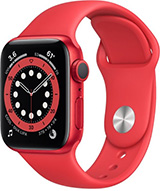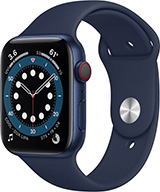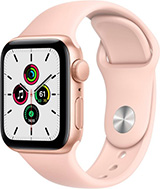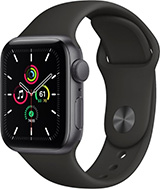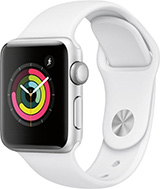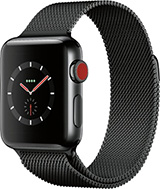Healthy BMI? Is Your Body Mass Index a Big Fat Lie?
What is BMI (Body Mass Index)?
On our journey to improve our health and fitness, we’re always looking for ways to know that we’re doing the right thing. One of the ways to do that is by making sure that our “numbers” are getting better. One of the common ways to gauge if our weight is in a healthy range is to keep track of our BMI. Is BMI really the right way to do this?
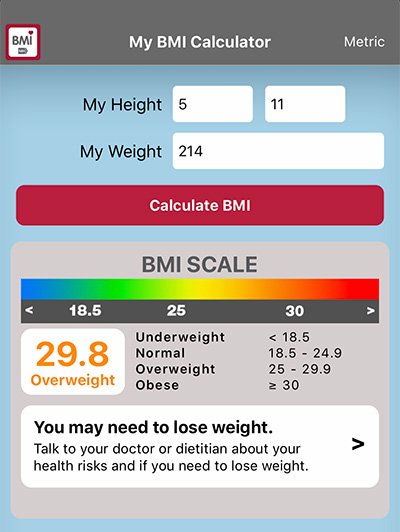 The Body Mass Index (BMI) is a measurement which shows whether a person has a healthy weight for their height. BMI is calculated based on a person’s height and weight.
The Body Mass Index (BMI) is a measurement which shows whether a person has a healthy weight for their height. BMI is calculated based on a person’s height and weight.
The BMI index classifies people into one of four different categories :
- Underweight (BMI less than 18.5)
- Healthy (BMI between 18.6 and 24.9)
- Overweight (BMI between 25 and 29.9)
- Obese (BMI greater than 30)
BMI is calculated using the following formula:
Weight (in kilograms) / Height (in meters) squared
For example, someone who’s height is 1.80 meters, who weighs 80 kilograms would have a BMI of:
80 / (1.8 * 1.8) = 24.69
If you prefer to use weight in pounds and height in inches, the calculation is a little more complicated:
Weight (in lbs.) * 703 / Height (in inches) squared
For example, someone who’s height is 5 feet 6 inches and weighs 140 lbs. Would have a BMI of:
140 * 703 / 66 * 66 = 22.59
There are many websites that have BMI calculators where you enter your height and weight, and the BMI is calculated. If you want to check your own BMI, you can use the BMI Calculator on the NIH (National Institute of Health) website. You can also install the BMI Calculator app on your iPhone.
Is BMI Reliable?
Height and weight are easy to measure, and BMI is easy to calculate. However, there are many cases in which the BMI gives an inaccurate assessment of whether a person’s weight is healthy for their height.
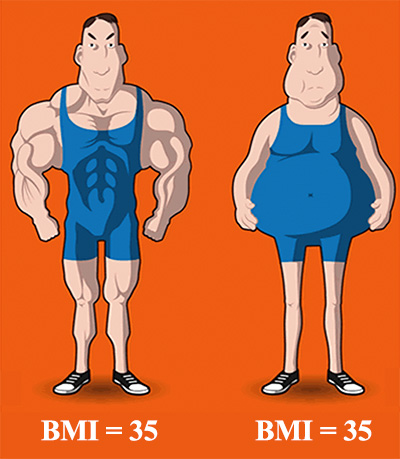 The problem with using BMI is that the weight that is used to calculate the BMI doesn’t distinguish between body fat and lean muscle mass. Two people could be the same height and weight, but have very different body composition.
The problem with using BMI is that the weight that is used to calculate the BMI doesn’t distinguish between body fat and lean muscle mass. Two people could be the same height and weight, but have very different body composition.
One could have 30% body fat, and the other could have 10% body fat. The person with 30% body fat would be considered obese, and calculating his BMI would probably reflect the fact that he is obese. However, a person who has 10% body fat and weighs the same as the one who has 30% body fat, would also be considered obese based on his BMI. In reality, he’s in excellent physical shape.
A bigger problem is that there are many people with a BMI that is considered to be in the Healthy range, who may actually have high body fat percentage and a low amount of lean muscle mass. This may mean that he is not as healthy as his BMI indicates. These people are sometimes referred to as “skinny fat people”.
Other Ways to Determine if Your Weight is Healthy
There are many ways that one’s physical condition can be measured besides BMI. If you have not been working out, or are not in very good shape, then BMI is a good way to see if your weight is unhealthy. However, if your BMI shows that you are healthy, you need to make sure that you are not a “skinny fat person”.
While BMI is very simple to calculate, since it only requires knowing the person’s weight and height, there are other measurements that can be used that may provide a more accurate assessment of how healthy you are.
Some Alternative Ways to Measure Your Obesity Level
- Skin Calipers
- Waist Circumference
- Hydrostatic Weighing
- Bioelectrical Impedance Analysis
- Body Composition Scale
- Waist to Hip Ratio
- Waist to Height Ratio
The Waist to Height Ratio is easy to measure and easy to calculate. There are many who think that this gives a better overall assessment of your health than BMI. Enter your waist circumference and height and see how you measure up in this Waist-Height Ratio Calculator.
Body Composition Scale
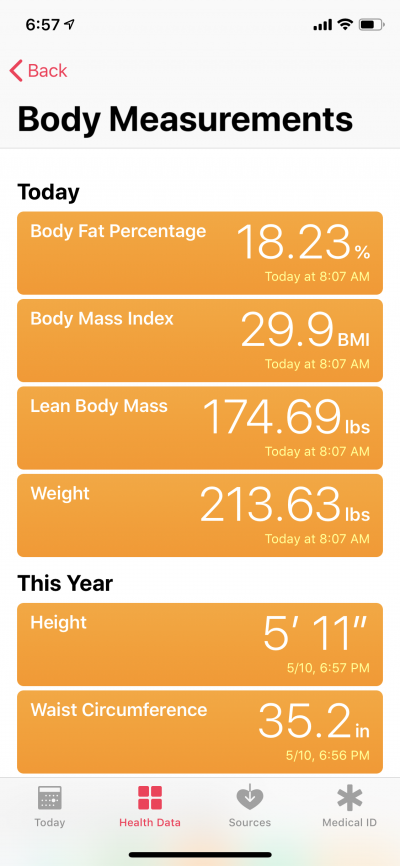
There are many reasonably priced body composition scales that work seamlessly with the Health app on the iPhone via bluetooth. These scales can measure your body fat, lean muscle mass and much more, and automatically store the measurements in the Health app.
Your body composition is really what’s important in determining if you’re at a healthy weight. It is very important that your body fat is not too high and that you are not losing your lean muscle mass.
If you are planning to lose weight, using a body composition scale will help you know if you’re losing weight in a healthy way. You will want to lose body fat while you are gaining lean muscle mass.
See our blog post: RENPHO Bluetooth Body Fat Scale: The Easiest Way to Track Your Body Fat for a review of the body composition scale that we use. This will help you easily keep track of your body fat percentage and lean muscle mass.



